Curious About K-Dramas? Here're Some Reviews to Get You Started!
ABYSS | BECAUSE THIS IS MY FIRST LIFE | CALL ME MOTHER | FIGHT FOR MY WAY | HEIRS | HELLBOUND | HWARANG | WHAT'S WRONG WITH SECRETARY KIM
Hello, and welcome to K-Culture with Jae-Ha Kim! This is my space where I’ll write about K-dramas, Korean films and other Korean-centric issues. My reviews and essays often include cultural context about what is being presented — things that non-Korean speakers may have missed. I also write about the immigrant experience, which includes some of the lingering damage many of us went through in order to fit in.
Here’s the link to an index of some of my K-drama reviews.
Please note that my rating system goes from ☆ to ☆☆☆☆.
Here are my first set of reviews that I hope you will enjoy and share:
° ABYSS (어비스) ☆☆½
° BECAUSE THIS IS MY FIRST LIFE (이번 생은 처음이라) ☆☆☆½
° CALL ME MOTHER (마더) ☆☆☆
° FIGHT FOR MY WAY (쌈 마이웨이) ☆☆☆
° THE HEIRS (왕관을 쓰려는자, 그무게를 견뎌라-상속자들) ☆☆☆
° HELLBOUND (지옥) ☆☆☆
° HWARANG (화랑: 더 비기닝) ☆☆½
° WHAT’S WRONG WITH SECRETARY KIM (김비서가 왜 그럴까) ☆☆☆½
“What’s Wrong with Secretary Kim”
김비서가 왜 그럴까
☆☆☆½
Lee Young-Joon (played by Park Seo-Joon)
Kim Mi-So (played by Park Min-Young)
Lee Sung-Yeon (played by Lee Tae-Hwan)
There's very little wrong with the chemistry in the Korean series, "What's Wrong with Secretary Kim." The attraction between the main characters is so strong that (of course) the off-screen dating rumors have surfaced.
Both Park Seo-Joon and Park Min-Young deny they are anything more than friends, but you almost can't blame netizens for their wishful thinking.
The two unrelated Parks star as a pampered head of a company and his loyal secretary. He is arrogant and socially inept. She is indispensable to him, not only because of her efficiency, but because she is the only one who can put up with his demands without cracking.
The literal translation of the series title is "Why is Secretary Kim Like That." I'm mildly offended by both titles, because they imply that there is something wrong with her, when in reality, there's more that's a bit off about him. He treats people horribly -- including her. (We find out later why he is the way that he is.)
One day, she announces that she is giving her notice. She's not leaving because she doesn't like her position, but rather because she has fulfilled her role as the breadwinner in her nuclear family. She paid off her father's debts to loan sharks; and she has finished putting her older sisters through college. Having worked full time since she graduated from high school, she'd like to do something for herself, though she doesn't know what that is yet.
A few thoughts went through my mind about her life at this point:
1) Never quit a job without having something else lined up.
2) And what the heck was her father doing while his youngest child was working her butt off taking care of their family?
Yes, I know that his dream was to become a rock star and that he was distraught after the death of his wife. But when you become a parent, your dreams have to take a backseat to helping your children fulfill theirs -- or at least helping pay for college. Mi-So was as smart as her sisters and admitted to a good university. But she didn't go, because she felt the obligation to earn money.
There is a brief love triangle, when Young-Joon's older brother, Sung-Yeon, falls for Mi-So. They had both been kidnapped together as children, so he feels they are meant to be together. This one-sided romance doesn't drag on and is handled expeditiously and in a way that doesn't seem improbable.
Besides the stars, the child actors who play younger versions of the characters are precocious and adorable. And the supporting characters overall are excellent (though I didn't care for Hwang Bo-Ra's overacting as one of Mi-So's colleagues). Kang Ki-Young is a standout as Young-Joon's best friend and underling at Yoomyung Group. Recently divorced and still obviously in love with his ex-wife, he gives Young-Joon much-needed dating advice and is just a really good (and funny) friend.
Hwang Chan-Sung -- better known to K-Pop fans as 2PM's Chansung -- is also very good in his role as Go Gwi-Nam, a handsome go-getter, who has no life outside of work.
Meta moments: In Episode 5, Mi-So's elder sister tells her that people from similar backgrounds fare the best. Mi-So mentions gae sae (dog bird). Dog Bird was the name of Park Seo-Joon's character in "Hwarang."
Chansung sings an intentionally off-key version of "Heartbeat," a song made famous by his group 2PM.
Airdates: 16 one-hour episodes aired on tvN from June 6 to July 26, 2018.
Spoiler Alert: Sung-Yeon had grown up blaming Young-Joon for escaping, while he had been kidnapped and tortured. In reality, it was Sung-Yeon who had left him alone, knowing that his little brother was scared. After the kidnapping, Sung-Yeon was so distraught that he began to think he had been the victim. Seeing his brother suffer, Young-Joon pretended to lose his memory and the parents thought it would be best to go along with their elder son's theory that it was he who had been abducted.
Though the series doesn't spell it out, this partially explains why Young-Joon is the way that he is. He has been forced to live a lie for most of his life.
The woman who kidnapped Young-Joon and Mi-So is portrayed as unhinged. Forced to have an abortion by her married boyfriend, she kidnaps the children. Why? I'm not sure. Maybe because she has regrets about not having any children of her own. Maybe because she doesn't want other families to be happy, if she can't be happy. It appears that she didn't choose either child for any other reason than proximity. She took Mi-So, because the opportunity presented itself (the little girl ran out of her house, looking for her mother, who had died). Young-Joon was left alone in a deserted area. She didn't kidnap him for ransom, but for some twisted sense of justice in her own mind.
When we first met Go Gwi-Nam, he was the company's most coveted employee. Handsome, athletic and smart, he also was a bit of an oddball who was extremely cheap. He would treat himself to sweet and sour pork once a year, on his birthday. He had grown up extremely poor and any accomplishment he achieved was met with pity. People would say that it was so wonderful that someone from such a poor family did so well for himself. He vowed that his future children wouldn't be put in that position. Every penny he made was put into the bank so he could buy a nice house for his future family.
While I'm not a huge fan of K-Dramas that do a lot of flashing forward in the final episode, I had hoped that Mi-So would get to explore the world before marrying Young-Joon. Or, I wish the series would've showed that though married, she wouldn't be working for her husband as his secretary, but was attending college. With her brains, work experience and life skills, she would've been a shoo-in for Seoul University. There's nothing wrong with being Young-Joon's secretary, especially when she excels at what she does. But I had the nagging feeling that she decided to remain at this company not because she really wanted to, but because she knew that he needed her there.
While, of course, she loves him and vice versa, sacrificing her dreams to fulfill someone else's needs is what she had done all her adult life.
© 2018 JAE-HA KIM |All Rights Reserved
“Abyss”
어비스
☆☆½
Go Se-Yeon / Lee Mi-Do (played by Park Bo-Young)
Cha Min (played by Ahn Hyo-Seop)
↑Note: Korean names denote the surname followed by the given name.
The “Abyss” isn’t the K-Drama that I had hoped it would be, but there were enough elements to keep me interested in watching it ’til the end.
Se-Yeon is a beautiful and whipsmart prosecutor who is brutally murdered — possibly by a serial killer. Min is a wealthy and brilliant businessman whose only “flaw” is that he’s physically unattractive.
Through a series of events that find them both dead — and then revived by a glowing orb known as the Abyss — they take the form of other people. Se-Yeon takes the form of a former colleague, Mi-Do. And Min is stunned to realize that he is handsome enough to walk the runway. Revived people are supposed to take the form of their inner souls. But it’s never explained why Se-Yeon takes the appearance of a living person, while Min is transformed into someone who seemingly never existed. (And, later, others are reborn looking exactly like their old selves.)
While we’re talking about looks: I don’t think I’m the only viewer who had a difficult time believing that the new Se-Yeon (portrayed by Park Bo-Young) was any less attractive than the original Se-Yeon (who was played by former Miss Korea Kim Sa-Rang). But it was repeated over and over how Park’s Se-Yeon was short and homely compared to Kim’s Se-Yeon.
The serial killer element of the series is intriguing and holds your interest, even though it’s clear from the get-go who the murderer is. There is an accomplice. While you won’t be 100 percent sure who that might be, your first guess is probably correct.
One of the neat aspects of “Abyss” was how the orb changed colors each time it was used to save a life. At first, I thought the colors had to do with whether the deceased had been a good or bad person. But then I saw a pattern: red, orange, yellow … It was clear that the Abyss wasn’t infinite and that its power would cease after the last color of the rainbow had been reached: purple.
Airdates: Sixteen 60-minute episodes aired on tvN from May 6 to June 25, 2019.
Spoiler Alert: The serial killer is a well-respected, but sadistic and abusive, doctor. His accomplice is his biological son (Kwon Soo-Hyun), who was adopted as a child by a wealthy prosecutor, who had killed his own wife and crippled their child. It was never explained whether that was an accident or deliberate.
© 2020 JAE-HA KIM | All Rights Reserved
“Call Me Mother”
마더
☆☆☆☆
Soo-Jin (played by Lee Bo Young)
Hye-Na / Yoon-Bok (played by Heo Yool)
Note: There are spoilers in this review.
What makes a mother? The question arises throughout the series, “Call Me Mother” — a compelling drama starring a precocious child actor who owns every scene she’s in.
Hye Na is a little girl of about 8. But malnourished and underweight, she can pass for a kindergartener.
The first episode is difficult to watch. Hye-Na is shoved down the stairs by her mother, Ja-Young (Ko Sung-Hee). She is beaten by her mother’s good-for-nothing boyfriend, Seol-Ak (Son Seok-koo), who calls her disgusting and stuffs her into a trash bag.
When Ja-Young asks her boyfriend not to beat Hye Na, it’s not to protect her, but because people are starting to notice the little girl’s swellings and bruises. She tells him that he’s a wonderful man for putting up with a girlfriend with a child, and that if he wants, she will drop Hye-Na off at an orphanage and bear his own genetic child.
WTF?!
One day, while his girlfriend is at work, Seol-Ak wakes up Hye Na, who finds safety sleeping curled up inside a suitcase. He forces her to eat a roll of kimbap that’s much too big for a child her size. He tells her how he killed her pet hamster. He tells her that if she cries, she will be punished. She cries. He puts lipstick on the little girl, sprays her with her mother’s perfume and it’s clear he is going to rape the child.
Ja-Young walks in, sees her daughter and, instead of rushing the child to safety, blames the girl for being a slut. This time, they both stuff the child into a trash bag and leave her outside on the curb as they go to the movies.
Honestly, by this point, if both of these abusers were hit by a car and died, I would’ve cheered.
Soo-Jin, a substitute teacher at Hye-Na’s school, knew the child was beaten at home. She and another teacher reported the abuse, but without evidence and the girl’s testimony, the police could do nothing. So when Soo-Jin finds Hye-Na outside in the trash bag, she makes a decision that will alter both their lives. She kidnaps the child to keep her safe from her abusers.
I finished watching this series three weeks ago, but I needed some down time to get my emotions in order. While there were several overly theatrical and improbable moments, there were also so many touching scenes.
I understand why the series was scripted the way it was. But I kept wishing for an alternative storyline.
We know that Soo-Jin is the adopted daughter of a wealthy movie star. With that kind of fame and money comes the power to make important people (politicians, police chiefs, the media) listen. As we would find out later in the series, her mother had the kind of pull to have Soo-Jin’s bullies removed from school and sent to study overseas.
Her mother could’ve gotten the ear of somebody high up in the police force to look into the abuse allegations. Soo-Jin’s colleague already had photos that documented Hye-Na’s abuse. Even without her famous mother’s intervention, the word of two teachers vs. an unwed mother (who are looked down upon in Korea) and her scumbag boyfriend (who has a police record) would carry some weight.
And if that didn’t work, they could’ve gone to the media to report that the police were endangering the life of a helpless child by not removing her from an unfit household.
But instead of doing so, Soo-Jin takes Hye-Na — who has renamed herself Yoon-Bok, after a local restaurant — on the run in what she knows is a hopeless case. Even if they were to allude the authorities, living on the lam is at best a stressful life for a youngster.
As we learn more of Soo-Jin’s backstory, we understand why her biological mother left her at an orphanage, where the youngster was cared for by Miss Clara. Soo-Jin takes Hye-Na to visit the elderly woman, who now suffers from dementia. Miss Clara’s heartless nephew wants to send her away to a nursing home so that he can turn her orphanage into a bed and breakfast. While she doesn’t have the capability to remember everything, she knows that her nephew views her as an inconvenience.
Watching the bittersweet scenes between Soo-Jin and Miss Clara…Oh, the feels.
Hye-Na, who lived with her own grandmother until she died three years ago, attaches to Miss Clara immediately. She wants to stay there and take care of the elderly woman. But they are on the run and have to leave much too soon.
Near the end of the series, Seol-Ak kidnaps Hye-Na. As he tortures her with the promise of her fate, he says, “Do you know what you and those other two kids (from my previous relationships) have in common? You all have mothers who don’t love you. … I just love watching mothers cry after their children die.”
Son Seok-Koo was so good at portraying Seol-Ak that the actor said he was receiving death threats on his Instagram account. After his last episode, the series included a cute, behind-the-scenes “thank you” to the actor that ran with the credits. It was obvious that the showrunners wanted to make it clear that the actor was playing a part; and that he should not be confused with the sadistic character he was so good at portraying.
Airdates: This 16-episode series aired from January 24 to March 15, 2018 on tvN.
The Adoption Element: This whole series essentially is one big adoption story. There is an adoption back story to all the major characters (see the Spoiler Alert below). A common element running throughout the plot is that you are not a “real” child if you don’t share your parents’ DNA. One of Soo-Jin’s sisters views herself as superior, because she wasn’t adopted. The emphasis on a family’s pure bloodline is still in effect today in Korea. And though more adoptive families are telling their children about their adoption stories, many still let their kids assume they are biologically related to their adoptive parents.
Soo-Jin’s adoptive mother has the best outlook about families, saying that it’s not giving birth to a child that makes you a mother, but raising that child with love and care.
The writers clearly are trying to make a point, showing that Soo-Jin was raised with love; while Hye-Na was raised in a house of horrors with her biological mother.
That said, I didn’t like how single moms were vilified. It is incredibly difficult in Korea for an unwed mother to get a job. If her employer learns of her family’s status, she can be fired with little repercussion. Without a job and her own parents’ support, it is so difficult for a woman to meet the needs of a baby. Many parents will disown a daughter, force her to get an abortion or send the baby away for adoption. None of these are loving options for a woman who would like to raise her own baby.
Certainly, most single moms don’t turn out like Ja-Young. To imply that a single mom will latch onto an abusive boyfriend at the expense of her child is a dangerous rhetoric, when the real question is: How can an unmarried woman raise her child in a country where no one wants to acknowledge them?
Spoiler Alert: Throughout the series, we learn the backstories of the main characters. Ja-Young got pregnant as a teenager. Her hopes of raising Hye-Na with her boyfriend are dashed when the young man throws some money at her in the hospital. It’s clear he wants nothing to do with either of them. Though her family wants her to give up the child for adoption, Ja-Young says she wants to raise her baby. “I may be a terrible mother,” she says, “but I’m going to raise her.”
Seol-Ak was raised by his mentally ill mom, who left him alone at home while she went on dates with her abusive boyfriend. One morning, he wakes up to a breakfast feast his mother had made for him. When he goes off to find her, he discovers that she had hung herself.
Soo-Jin and her birth mother had both been abused by her father. One day, her mother killed her husband. She knew she’d be sent to prison, so she dropped Soo-Jin off at Miss Clara’s orphanage.
Young-Sin adopted Soo-Jin from the orphanage. Afterwards, she adopted two other girls. Unlike Soo-Jin who was 8 when she was adopted, her sisters thought they were their mother’s natural-born children.
Say My Name:
© 2018 JAE-HA KIM | All Rights Reserved
“Fight for My Way”
쌈 마이웨이
☆☆☆☆
Ko Dong-Man (played by Park Seo Joon)
Choi Ae-Ra (played by Kim Ji-Won)
Kim Joo-Man (played by Ahn Jae-Hong)
Baek Seol-Hee (played by Song Ha-Yoon)
↑Note: Korean names denote the surname followed by the given name.
One of the things I enjoy about Korean dramas is that many — such as the superb “Reply” series — tend to focus of the main characters’ childhood friendships and how that camaraderie evolves into their adulthood.
Such is the case here, where four friends grow up with each other and, eventually, end up falling in (and out of) love.
Don’t scream at me about spoiling the plot, because there is no way anyone can watch the first episode and not see what will happen by the finale.
Dong-Man was a bit of a country bumpkin in high school. But as one of Korea’s top hopes to win a gold medal in taekwondo at the Olympics, he has a fanbase that includes the most popular girl in school.
Dong-Man’s downfall occurs as he is about to qualify for Korea’s National Team. His top rival offers him money to throw the match, pointing out that the funds would pay for his disabled sister’s surgery. He says no. But when Dong-Man sees his little sister sitting in her wheelchair, he hits the mat and stays down. He vows never to compete in taekwondo again.
Technically, he doesn’t. But after running into his taekwondo frenemy, who is now a top Mixed Martial Arts fighter, Dong-Man decides that he will get his revenge in the MMA octagon.
Ae-Ra is his childhood best friend. She watches out for him, especially when his emotions are yanked around by the college campus beauty, who returns to him every time she has a breakup.
Ae-Ra had dreams of becoming a famous announcer on a major network. But without the funds to travel and get the training that her competitors have, she ends up toiling away as a greeter at a department store. She has a young, pretty and stupid boyfriend, whose lifestyle she funds with her meager salary. Even after she catches him cheating on her — and impregnating another woman — she has difficulty reconciling that she no longer has such a handsome beau. She says repeatedly that a man’s face matters more than anything else.
The second couple in this drama has the less splashy but more convincing story line. Joo-Man and Seul-Hee work together at a homeshopping network. He is a salaryman, waiting to get a raise so he can rent a larger apartment and propose to Seul-Hee. She is a customer service rep, who is always doing other people’s work for them and getting none of the credit. They keep their relationship secret to keep the office gossip at bay.
When a colleague develops a crush on Joo-Man, Seul-Hee’s insecurity comes to the surface. But, she also realizes what she will and will not tolerate and takes a much-needed stance.
One of the most heartbreaking elements of this drama was when Seul-Hee’s hardworking mother overhears Joo-Man’s bitchy family saying negative things about her daughter, who they don’t believe is good enough for Joo-Man.
The finale ends exactly as it should. And the quartet’s last hurrah of sorts on their apartment rooftop is satisfying.
Airdates: This 16-episode series aired on KBS2 from May 22 to July 11, 2017.
Spoiler Alert: Ae-Ra’s mother didn’t die, as she had been led to believe. Rather, she had been ordered to leave the household, once Ae-Ra’s paternal grandparents realized she was an actress, whose screen credits included some sexy roles.
Dong-Man’s high school classmate Moo-Bin is a sociopath. He dates Dong-Man’s high school girlfriend to show her that Dong-Man is working at a gas station. And he dates Ae-Ra, because he wants to hurt Dong-Man. When Ae-Ra learns Moo-Bin is engaged to a Japanese heiress, she breaks up with him after he suggests that she becomes his mistress.
The Adoption Element: After Ae-Ra’s mother is kicked out of the house, she moves to Japan. There, she catches a 15-year-old homeless boy stealing her wallet. She later adopts him. Namil is always worried he will be thrown away once she is reunited with Ae-Ra. After she returns to Korea and buys the apartment complex that Ae-Ra and her friends live in, he questions what her real motives are and how he will fit into her life. She reassures him that they are, and always will be, family.
© 2018 JAE-HA KIM | All Rights Reserved
"Hellbound"
지옥
☆☆☆☆
Jeong Jin-Soo (played Yoo Ah-In)
Min Hye-Jin (played by Kim Hyun-Joo)
↑Note: Korean names denote the surname followed by the given name.
"Hellbound" starts off with an act of God. Supposedly. As a man trembles in fear, three giant monsters that look like they were conceived by the Hulk and a gorilla emerge to take him to hell. Why? Because he's a sinner. How do we know he's a sinner? Because prior to his death, a huge, giant floaty head appeared to warn the man that he had X number of days left before he would be killed and dragged to hell.
Alrighty then. But that still doesn't explain how only sinners are selected, right?
A religious cult comes up with a plausible explanation that frightened citizens latch onto: these are acts of God. Sinners are being killed for living immorally, though what they did to deserve a painfully drawn out death isn't articulated. Did they steal a candy bar when they were 5? Or did they kill someone just to see what it felt like?
The answer is left for society to gossip about and judge.
Just as rabid spectators watched as Christians were thrown to the lions, the New Truth Society — led by charismatic leader Jeong Jin-Soo — orchestrates a demonstration, which is the cult's own version of (sicko) performance art. A victim who has received their decree of death are sat at a chair, while a group of wealthy VIPs are seated nearby to get the best view of the carnage — essentially a real life snuff film. These masked men and women paid millions of dollars to watch a person die in front of their eyes. That a portion of the fee they paid for this privilege will go to the victim's loved ones doesn't make the concept any less obscene.
Jeong-Ja (played by Kim Shin-Rok) learns on her birthday when she will die. When members of Arrowhead — a violent subset of the New Truth Society — dox her, they learn that she is a single mother of two boys, who weren't fathered by the same man. Netizens speculate that she must be a whore, because what decent woman would have sex outside of marriage with at least two different men? Amirite? 😑
Social media influencer Skullface is the crazed face of Arrowhead, who encourages his massive following to use violence to attack sinners. Many of his followers are teens, who know they will serve zero jail time. They beat, maim and murder people for fun, but don't consider themselves to be bad. They are merely ridding the world of citizens they have been told are evil. Wrap that around your head.
I mentioned on Twitter that I was bothered by Skullface's appearance.
#tw Halfway through #Hellbound & it's good. But I'd like to know why the fuq they have a character dressed like a "witch doctor" in blackface, complete with exaggerated lined large lips. It is completely unnecessary & such a disappointment. It's almost 2022.
However, several readers pointed out that it was a combination of fluorescent makeup and lighting that made his face appear black on his streams. Though it may not have been intended as blackface, that's still how it comes across to me in his streams. I'm not African American and will always defer to Black viewers' opinions when it comes to this sensitive matter. So please leave a comment if you have an opinion about this.
Save for the ridiculous CGI monsters, this series is compelling, if a bit uneven in how it handles its six episodes. The cast and storyline for the first half of this production comes to an abrupt end after episode three, followed by a timeline separation of five years and a different cast to focus on. In true Netflix manner, the ending isn't a series ending, but rather a setup for a second season next year (which will be released first as a webtoon).
Director Yeon Sang-Ha ("Train to Busan"), who adapted this series from his own webtoon of the same name, makes it clear that cults are the true sinners that manipulate people's lives with fear. And that hell isn't necessarily a place foreign to us, because it's where we may already be living.
Airdates: Six episodes (about 45- to 60-minutes each) were released on Netflix on November 19, 2021. "Hellbound" currently is the most-watched Netflix series, having jumped into the top slot within 24 hours of its premiere date. Previously, "Squid Game" held that record.
Spoiler Alert: Though no one knows why certain people are being selected to go to hell, the New Truth Society latched onto people's fears by stating that it's because they are sinners. When a newborn baby gets her death sentence, the New Truth Society freaks out, because they will lose their followers (and the money generated by their flock) if word gets out that an infant is destined for hell. Watching the leaders of the congregation come up with ideas to explain away this phenomenon is truly nauseating.
© 2021 JAE-HA KIM | All Rights Reserved
“The Heirs”
왕관을 쓰려는자, 그무게를 견뎌라-상속자들
☆☆☆☆
Kim Tan (played by Lee Min-Ho)
Cha Eun-Sang (played by Park Shin-Hye)
Choi Young-Do (played by Kim Woo-Bin)
I liked almost everything about this 20-part Korean series, from the acting, to the writing, to the pace. The chemistry between the primary cast members Lee Min-Ho, Park Shin-Hye and Kim Woo-Bin was outstanding — though of the three, only Park would pass believably as a 17 year old.
Before going further, here’s a character map via zafirahoney.blogspot.com to help keep track of who’s who:
Set in a high school populated with the children of the rich — and therefore — powerful, “The Heirs” introduces us to teenagers who live by a strict caste system. The son of Korea’s most powerful man, Tan is at the top, followed by his frenemy Young-Do. Students hailing from new money families are regarded as gauche, but tolerated. The scholarship students who have to work after school are at the bottom. They are bullied and beaten mercilessly — and even those who’d like to help won’t, because they don’t want to align themselves with the unwanted.
In a school filled with state-of-the-art security cameras, the series makes it clear that the administrators also turn a blind eye and only intervene when members of the elite fight each other. The scenes that were most difficult for me to watch were when Young-Do and his cronies singled out a scholarship student to humiliate and beat him until he finally transferred out. Though the series does an admirable job of having Young-Do mature by the series finale, it was difficult for me to warm up to him because of his cruel past.
Tan, who was sent away to study in America for three years before returning to Korea, used to be as bad as Young-Do. But since his shameful actions were never shown, he’s already set up as the character the writers want viewers to root for. The thing is, Kim Woo-Bin is an actor so full of charisma that he can make a seemingly unredeemable character like Young-Do likeable.
I can’t think of any Korean Drama I’ve watched yet where there isn’t a love triangle, and this is no exception. I suppose there is realism in how both boys treated Eun-Sang, the daughter of a mute maid who has to work multiple jobs, even with her scholarship. Though they both profess to care for her — and even love her — they treat her like property that must be taken away from the other. To have her is to win.
Though she tries to maintain her dignity, Eun-Sang is like a human rag doll who is literally pulled and pushed around at the whim of the boys who want to protect her. It didn’t matter whether she liked either one of them. Neither would take no for an answer, and that’s a scary reality for her.
As attractive as Eun-Sang is to those two boys, she is in danger of becoming a target at school if the other students learn of her status as the daughter of the maid who serves Tan’s family. Tan tries to keep it a secret. But, before long, the kids at school are gossiping about what horrible background she might come from: an adopted child with no blood ties to a protector? The product of an affair? The child of a servant? Or, worst of all, hailing from an impoverished family.
For a little while, only Tan knows that she is poor and living (with her mother) in a small closet-sized room in his mansion. And Eun-Sang keeps his secret, that he is the illegitimate child of his father’s mistress.
Tan clearly was starved for love growing up. His father never showed him affection, because he didn’t want to make Won — Tan’s older brother — jealous. Won was so worried about Tan eventually taking over his role as the prodigal son that he refused to bond with his little sibling. Ironically, the brothers both fell in love with poor women who their father didn’t approve of. Won’s girlfriend was an orphan, who was able to finish college due to a scholarship from his father. Though beautiful, kind and smart, she was considered an unsuitable match, due to her lineage.
Abuse: Young-Do’s father is cold, distant and shows zero affection for his only child. He slaps his son’s face in public and shows no mercy when the two spar in judo. When Young-Do and Tan get in trouble at school for fighting, Young-Do begs Tan to tell his father that he hit Tan first. He knows he will get in trouble not for being in a fight, but for losing.
In a lighter scene, when it’s revealed that Tan finished last in his class of 100, and Young-Do placed 98th, his father smiles and says, “You’ve finally beaten Tan at something.”
Favorites: I loved the warm relationship between Eun-Sang’s childhood friend, Chan-Young, and his father. I also enjoyed the scenes between Eun-Sang’s mute mother and Tan’s mom, who was kept hidden from “respectable” society due to her mistress status.
욕/Swearing: When I was little, many of my friends were fascinated that I could speak another language besides English. They were curious if I could, you know, swear in Korean. I could not. I came to the U.S. before I started kindergarten and my parents never cursed, so where would I learn to swear?
But, thanks to Korean dramas, I’m learning all kinds of yok now. Here are some of my favorite Korean swear words.
You’re welcome!
꺼져 (guh jyuh): You’ll hear this phrase the most. It’s a rude way to say, get lost.
미친놈 (me chin nom): Crazy bastard.
새끼 (saekki): The literal meaning is young/little animal and is also often used fondly to refer to one’s own children. But, said in an angry tone, it’s a derogatory way to put down a person.
개새끼 (geh saekki): 개 means dog in Korean. This phrase basically means son of a bitch.
Airdates: Twenty episodes aired from October 9 to December 12, 2013, on SBS.
Spoiler alert: In the final episodes, loose ends are tied up. Young-Do is reunited with the mother who he thought abandoned him as a child. Her disappearance was never explained, but it’s likely that she was running away from an abusive marriage, where her control-freak husband flaunted his affairs.
Tan’s father survives his operation and seems to relent on Tan’s relationship with Eun-Sang. Tan’s relationship with his brother warms up as well. And it appears that Tan and Young-Do won’t allow bullying at their school anymore. At least, that was my hope.
© 2021 JAE-HA KIM | All Rights Reserved
“Because This Is My First Life”
이번 생은 처음이라
☆☆☆½
Nam Se-Hee (played by Lee Min-Ki)
Yoon Ji-Ho (played by Jung So-Min)
↑Note: Korean names denote the surname followed by the given name.
“Because This Is My First Life” is a bittersweet series about two broken people who decide to cohabitate for financial reasons. It is also a story that is heartwarming, funny and romantic.
The melancholy start to this Korean drama gave me the same feels as “Pretty Noona Who Buys Me Food” (in a good way).
All that sounds kind of melancholy and unromantic, right? But the drama is so well done that the viewer will fall in love with the characters before they realize they are in love with each other.
I feel zero remorse giving away that tidbit, because anyone who has seen a K-Drama knows before ever starting the first episode that this is where the couple is headed. But there are still plenty of surprises ahead that (for the most part) are handled well: a miscarriage, an attempted rape, sexual harassment, sexism, stalking, #MeToo.
Ji-Ho is the oldest child in a patriarchal household, where her brother is coddled and adored — to the point that after he marries his pregnant girlfriend, he gets the house that Ji-Ho has made all the payments on. (By the way, this isn’t the couple that will lose their baby.)
A graduate of the prestigious Seoul National University, Ji-Ho dreams of becoming the main writer for Korean dramas. But her writing career has stalled, with her job consisting mainly of inserting product placements in the work written by more established storytellers. (I enjoyed this meta moment very much, since I talk often about the obnoxious product placements for fastfood joints like Subway.)
Se-Hee is a sullen man who reminds me of Sheldon (from “The Big Bang Theory”). He is whipsmart and socially inept. At the beginning of the series, he’s a big weirdo, whose compassion is overshadowed by his compulsion to have things done precisely without deviation. He is robotic in his speech pattern and dead in the eyes.
His boss and best friend tells him:
One of the finer moments of this drama was watching him loosen up and turn into a more stereotypical leading man (in terms of looks). As one of the viewers commented on Viki.com:
Because he overthinks everything he does, I found it difficult to believe that he would knowingly purchase a house that he couldn’t afford without renting out a room. But I digress.
Ji-Ho and Se-Hee end up being platonic roommates, sharing the bills and the most ridiculously beautiful cat I have ever seen. Her name is 고양이 (which literally means cat in Korean).
Se-Hee falls in love with Ji-Ho’s tidiness and love for 고양이 and doesn’t want to lose her as a roommate. But he also worries that his parents won’t approve of his having a female roommate. That coupled with his mother’s insistence that he get married compels him to propose a marriage of convenience to Ji-Ho.
While I would never encourage people to enter into loveless marriages, there is something to be said for choosing to spend the rest of your life with someone you like — even you don’t love them. Without strong compatibility, that burning love (or infatuation) you may feel during the early years of a relationship may extinguish quickly.
Their parents are unaware that their marriage is a business arrangement. At the first meeting between both sets of parents, Ji-Ho’s mother can see that Se-Hee’s parents believe Ji-Ho is lucky to marry into their family. Worried that her daughter will be mistreated because she doesn’t come from a good (i.e. rich) family, she bitterly voices her concerns.
And when it comes time to hold the annual 제사 (ancestral memorial), her mother is proven correct. Se-Hee has already said he won’t attend and tells Ji-Ho not to go. But guilted into it by his mom, she goes and is immediately put to work doing everything, while all her in laws sit around and relax.
On a related note, mothers in Korea never want their daughters to marry the oldest (or only) son, because he — and therefore his wife — have so many responsibilities to his parents. Back in the day, the daughter in law was treated as the de facto servant, who was expected to do everything her husband’s parents asked of her. Also back in the day, the eldest son inherited everything, so this was a burden they put up with, knowing there would be a payoff for their suffering. But nowadays, more elderly Koreans are splitting their assets more equitably between their children.
Whether Ji-Ho and Se-Hee remain married is irrelevant. What is real is that the feelings they have — or don’t have — for one another aren’t dependent on what a piece of legal document says.
Interspersed with the storyline between the main pair are two separate arcs involving Ji-Ho’s best friends. Soo-Ji is a mid-level manager at her company — one of the few women in power. Ostracized and sexually harassed by her fratboy-like male colleagues, she withholds her anger, because she doesn’t want to be viewed as an emotional woman. Meanwhile, their friend, Ho-Rang, is ridiculed for having a dream not considered worthwhile to many: that of being a wife and mother. She and her long-time boyfriend find themselves questioning whether they are right for each other. And while some of their interactions were immature, theirs was also the most realistic relationship — one that proved that loving someone isn’t enough to sustain a romance.
Airdates: Sixteen hour-long episodes aired on tvN from October 9 to November 28, 2017.
Spoiler Alert: Se-Hee had one serious relationship prior to meeting Ji-Ho. After he got his girlfriend, Ko Jung-Min, pregnant, he wanted to marry her. His parents forbid it and kicked him out of the house. He brought shame to their family, they said, not just because she was pregnant out of wedlock, but because she came from a poor family. Would he be willing to take care of her family? His answer didn’t matter, because they didn’t want him to bear those responsibilities. After she miscarries their baby, she leaves him, telling him to never be happy. Feeling immense guilt about how her life has been affected — he knows that a poor girl who has gotten pregnant before marriage will suffer much more than a boy whose family is relatively well off — he listens to her. Presumably, he hasn’t allowed himself to fall in love again, until he met Ji-Ho.
Ji-Ho’s colleague attempts to rape her. When her employers tell her to forgive him and move on — for the sake of their work family — she quits her job. It was so frustrating to watch her give up her dreams, because she didn’t know how to fight. But the maddening thing is that had she reported him to the police, she (like Jung-Min) would’ve been the one to suffer. It would be a case of he said/she said. And the rumors would’ve labeled her as the slut and him as the poor guy who was misunderstood.
I loved the happily-ever-after end to this series, which showed Ji-Ho as the creator of her own K-Drama and married to Se-Hee; and both her friends coupled up with their partners as well. Ho-Rang and her husband even had an adorable baby.
Cameos: Both leads make delightful cameo appearances as Mi-So’s parents (in flashbacks) in “What’s Wrong With Secretary Kim.”
HWARANG
화랑: 더 비기닝
☆☆½
Dog Bird / Sun-Woo (played by Park Seo-Joon)
Ah-Ro (played by Go Ara)
Ji-Dwi / King Jin-Heung (played by Park Hyung-Sik)
↑Note: Korean names denote the surname followed by the given name.
"You get to decide what kind of King you are going to be."
Don't remember that line from "Hwarang"? That's because it's a quote from the blockbuster film, "Black Panther." When the newly crowned king, T'challa, worries about how he will rule over his subjects, Nakia tells him, "You cannot let your father's actions define your life."
I watched the final episode of "Hwarang" around the same time that I saw "Black Panther." And Nakia's words could've applied to the young monarch in this Korean drama as well. The Queen Regent hid Ji-Dwi away from the public to safeguard him from assassination attempts. When he returns, ready to take control of Silla, he is unsure of how he will become a king who can help everyone, rather than just the ruling class.
"Hwarang" is a beautifully-filmed, but uneven drama. The series tries to be too many things at once: a romance, comedy, historial period piece, swashbuckling adventure. The result is that the love triangle at the core of this drama is less intriguing than the bromance between the male leads.
Ji-So (the overly protective Queen Regent) doesn't believe Ji-Dwi is ready to rule Silla. She also is reticent to let go of the throne. Whether it's because she's power hungry or worried that the opposing powers will kill Ji-Dwi is debatable. There's probably a little bit of truth to both.
The Queen Regent comes up with the idea to form the Hwarang -- a group of well-educated, handsome young men from the most well-connected elite families. Her theory is that the Hwarang will protect Ji-Dwi when he comes into power. And the Hwarang's fathers won't try to usurp the royal family's powers if they know their own sons could die during the process.
The biggest threat to the royal family is Young-Shil, the ruthless adoptive father of Ban-Ryu. The latter is forced to become a Hwarang against his will, because Young-Shil wants to put Ban-Ryu on the throne and control the puppet strings.
It was never fully explained why Ban-Ryu was adopted, when his father, Lord Ho, is still very much alive. My guess is that Young-Shil didn't have a son, so he took the child of the latter, who didn't have the political power or wealth to protest. You can see Ban-Ryu is both heartbroken and disgusted when he watches Young-Shil berate Lord Ho, literally stepping on his back as if the latter was a stepstool.
Enter Dog Bird, a feral orphan who is cunning and known for being a fearless fighter who never backs down. When his best friend, Sun-Woo, is killed because he has seen the face of the sheltered king, Dog Bird takes over his friend's identity and vows to kill the monarch.
He meets Sun-Woo's beautiful sister, Ah-Ro, who at first doubts his identity. But as Dog Bird reminds her of the stories that Sun-Woo had told him countless times, she wills herself to believe that this strange man could indeed be her older brother.
"Hwarang" doesn't hold a candle to the superior “Moon that Embraces the Sun” (해를 품은 달). But the fault lies more with the weak script and poor direction than the acting.
Speaking of acting, much has been made of the K-pop idols in this series. BTS' Kim Tae-Hyung is adorable as Han-Sung. Choi Min-Ho (SHINee) plays the always-ready-to-rumble Soo-Ho with just the right amount of aggression. And Park Hyung-Sik (ZE:A and ZE:A Five) cuts a regal figure portraying the boy who would become king
Initially, Kim didn't have much to do but act young and cute. But playing an airy aristocrat with the weight of his family's future on his slender shoulders, he showed that behind his wide-eyed smile, there was much pain and uncertainty. In the right hands, I can see this trio of idols being very good in a contemporary drama or something lighter, like "Ocean's Eleven."
They fared much better than the women, who were given thankless roles. The queen and her daughter are robotic both in mannerism and speech. As for lead actress Go Ara, she is given little to do but pout, scream and be rescued. It's a shame, because she was so good as IU's frenemy in "The Producers" and wonderfully fearless in "Reply 1994." Heck -- she even had a meatier role in Cho Kyuhyun's music video for "A Million Pieces":
What the series does do really well is delve into the class system that pits "half breeds" against aristocrats -- sometimes within in the same family. Han-Sung, the youngest Hwarang, is also the pampered stepbrother of Dan-Se, who is a "half breed." Though Dan-se is superior to Han-Sung both academically and as a warrior, he cannot lead his family, because his mother wasn't an aristocrat. Han-Sung wants nothing more than to study the arts, flirt with girls and spend time with his beloved brother. But he is forced to become a warrior. And when he can't keep up with the physical demands, their grandfather beats Dan-Se for the younger brother's failings.
In all honesty, theirs is a much more compelling story than the love triangle between Dog Bird, Ah-Ro and Ji-Dwi.
As for the ending, the finale is exactly as you would imagine it to be, which may be one reason I was left unsatisfied. I'll talk more about that in the Spoilers below.
Airdates: This 20-episode series aired on KBS2 from December 19, 2016 to February 21, 2017.
Spoiler Alert: Ah-Ro's brother, Sun-Woo, and their mother were banished into exile by the Queen, who was in love with their father.
Dog Bird, who grew up thinking he was a peasant, is actually the son of the Queen's brother, Hwi-Kyung, who was the former Crown Prince of Silla. When Hwi-Kyung developed polio, he was removed as a royal family member, because it was unfitting to have a "cripple" as the King. After their father died, Ji-So became the Queen Regent.
Also, Ji-So killed Hwi-Kyung's pregnant wife, because she was afraid that her brother's son would be a threat to the throne. Dog Bird's mother died, but he survived.
The writers dropped the ball with the ending. We see that Dog Bird and Ah-Ro are a couple. But what of the king and his half sister, to whom he was bethrothed? (Ewww.) He was in love with Ah-Ro and she was infatuated with Dog Bird. I'm guessing that they will go their separate ways, never finding love with anyone else.
There was also a brief flirtation between the Queen Regent and Soo-Ho that was left unexplored. I realize that it couldn't have gone anywhere, due to their age difference being a taboo (although marrying your own sister apparently was just fine and dandy). But why did the writers even include that tidbit into the storyline? It did nothing to further the plot.
When Dan-se is ordered to kill Dog Bird, he inadvertently ends up killing his brother, Han-Sung, instead. The scene was bittersweet and well acted by all involved.
One of the best scenes occurred in Episode 10, when Jid-Hwi saves Ah-Ro from being killed by a royal guard. With the royal guard unsure whether to listen to the Queen Regent or to the young monarch, Jid-Hwi orders him and says, "Kneel before me. I am your king!" Yes! Finally. Use your power, Jid-Hwi!
Later, in Episode 16, Jid-Hwi reveals to Young-Shil that he is the king by nicking the old man's throat with his sword.
© 2018 JAE-HA KIM | All Rights Reserved
© 2023 JAE-HA KIM | All Rights Reserved





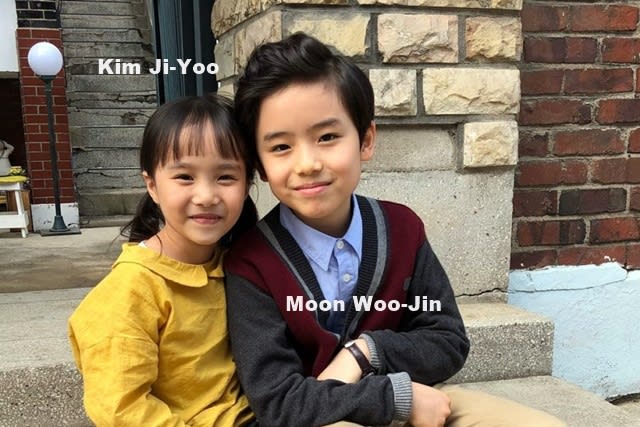

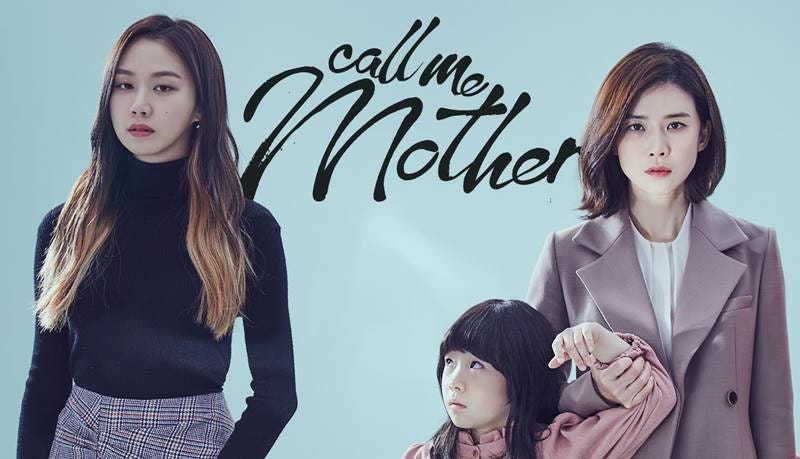
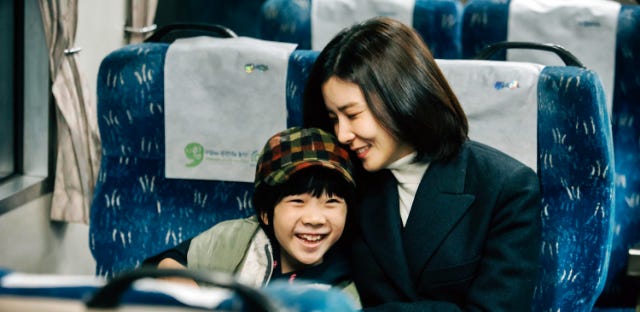





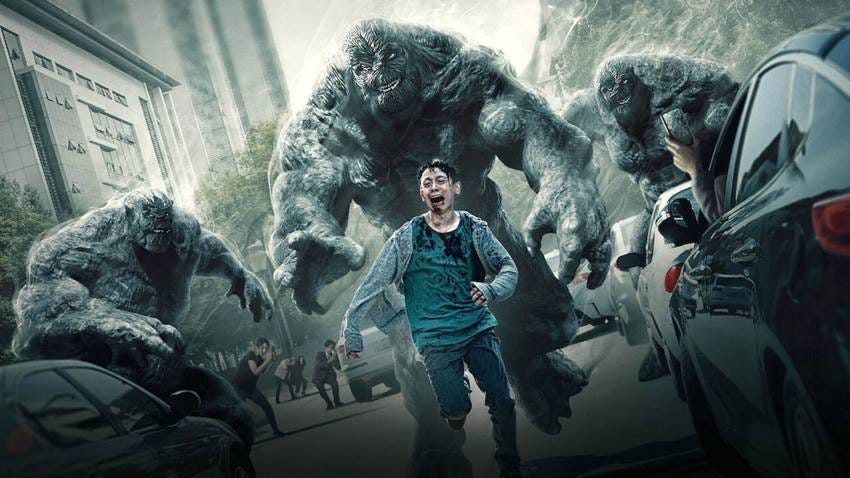
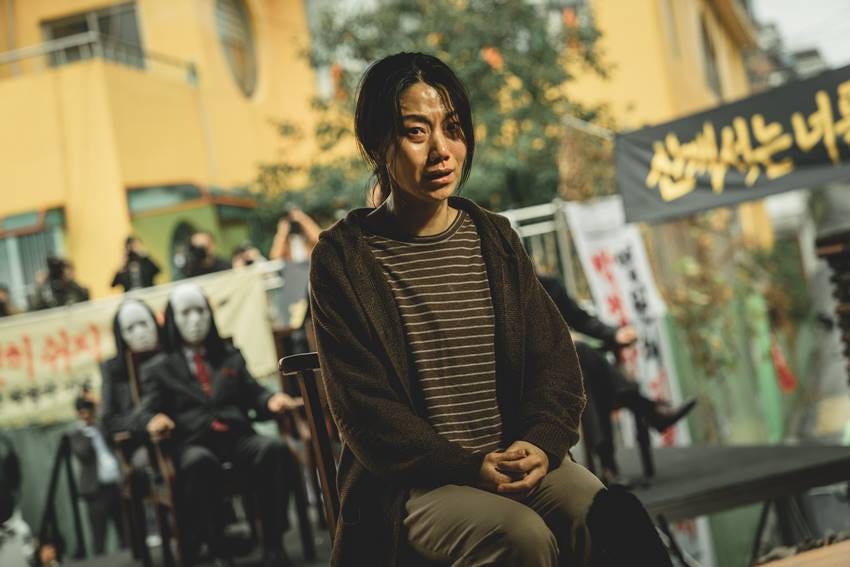

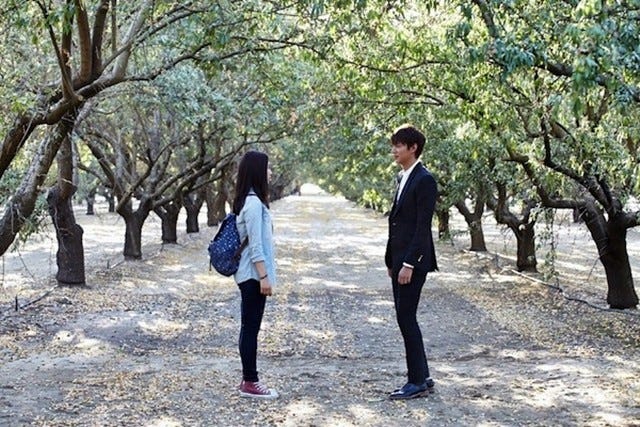
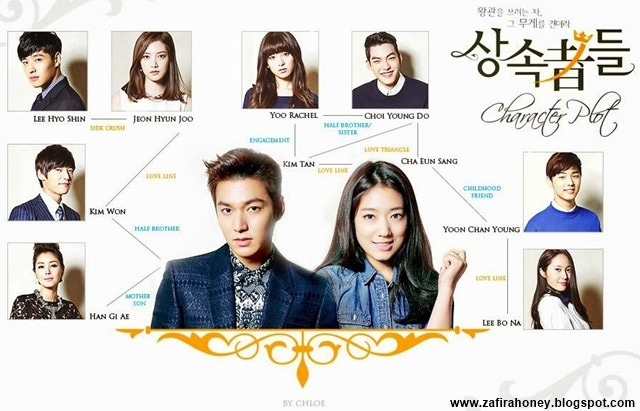
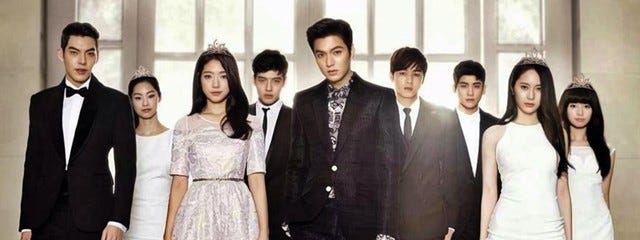


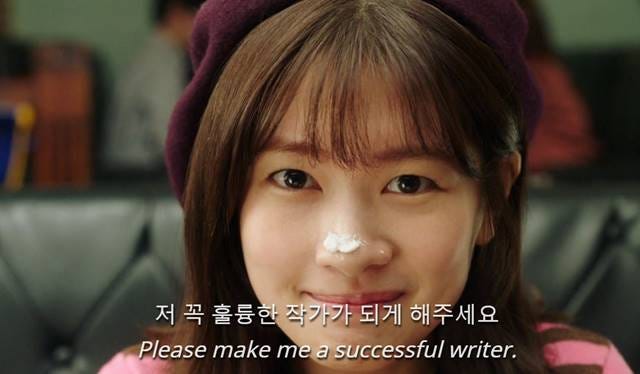
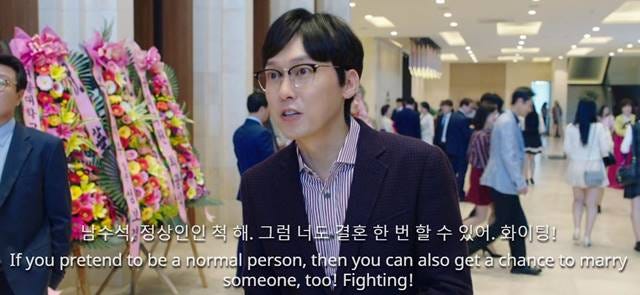
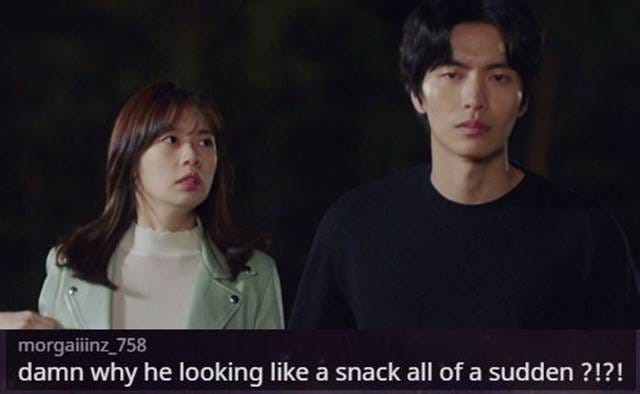



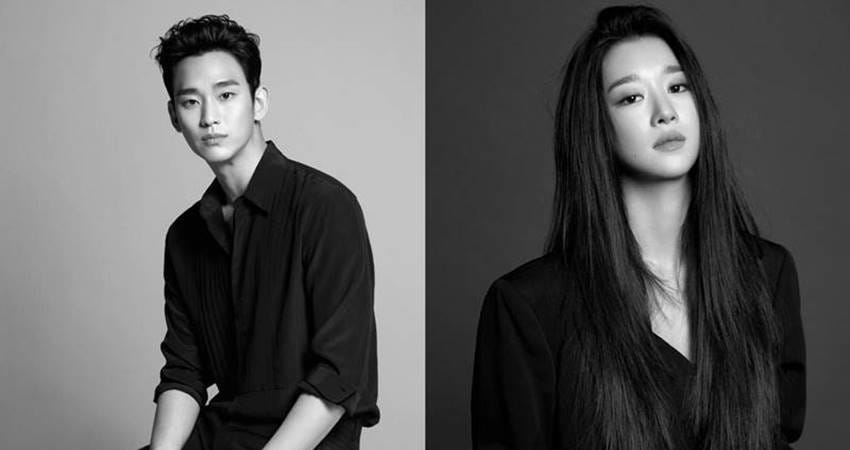
Much appreciate your reviews to help us watch good Korean dramas!
I recently watched Mr.Queen and that was excellent - both story and acting!!
I wonder if you have come across any other Korean drama that is humourous, causing belly-laugh yet has a good story. Many thanks!